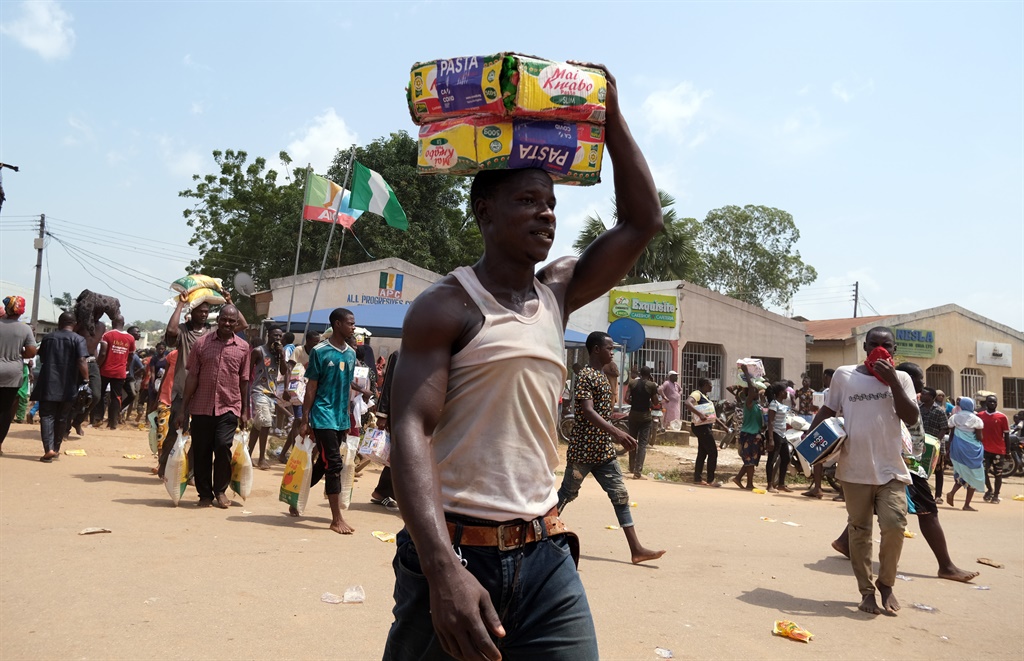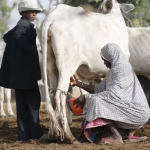On August 9, 2023, Agbu Kefas, the Governor of Taraba State, announced a “Palliative Care” scheme as part of his administration’s measures to alleviate the impact of the removal of fuel subsidies on the state’s residents.
To oversee the successful implementation of the scheme across all sixteen Local Government Areas of the state, the Governor inaugurated a Task Force Committee.
The inauguration ceremony, held at the Taraba State Government House, featured remarks by Saleh Sa’ad, the committee’s chairman. He assured that the committee would diligently work to provide the necessary support to ease the challenges faced by the people of Taraba during these trying times.
Expressing his confidence in the committee’s ability, Sa’ad remarked, “I am pleased that His Excellency has entrusted us with this vital responsibility. We are dedicated to ensuring the scheme’s success.”
Governor Kefas reiterated during the ceremony that it is his duty to prioritize the well-being of Taraba residents and that this commitment remains central to every decision made by his administration.
“We are all aware that the recent removal of fuel subsidy at the National level has raised concerns about its impacts on ordinary citizens, especially the vulnerable members of the society,” he says. “While the policy may have its merits, it has also brought about economic challenges, and we cannot afford to overlook the plight of those who are most affected.”
As part of the “Palliative Care” scheme, the administration of Governor Kefas pledged to distribute free fertilizers across 168 wards of the state.
The Governor stated that ”We will also supply free anthrax vaccines to protect our livestock and animals.”
Additionally, 750 Multipurpose mini tractors will be sold to farmers at a subsidized rate. But a farmer in Yorro Local Government Area of the state, Sani Nyaja, said it isn’t something he expects to work out.
“We are hoping to get the free fertilizers as promised. But you see, this issue of tractors just forget it. I can’t afford it even at a subsidized rate. I think it’s for the elite farmers not like us,” he told Prime Progress.
As Tarabans anticipate the implementation of the program, though there exists a faction who harbour scepticism regarding its effectiveness. These sceptics point to past initiatives, citing minimal outcomes that failed to meet expectations.
An illustrative example of such a previous endeavour occurred amid the COVID-19 pandemic in 2020. During that period, the State Governments in Nigeria, including Taraba, received palliatives aimed at being distributed to households to alleviate the hardships caused by lockdown measures.
However, the efforts of former Governor Darius Ishaku’s administration to distribute these palliatives were marred by controversy. Instead of reaching the intended beneficiaries, the palliatives were discovered locked away in warehouses spread across the state. Consequently, this situation left a considerable number of citizens hungry and without the intended support.
The perceived insincerity of the then government led to protests in the state and with citizens storming government-owned warehouses to cart away food items.
The protest later cascaded into the looting of even privately owned warehouses across the state.
Alhaji Saleh Umaru & Sons’ private warehouse located in Sabon Gari, Jalingo, was one of such warehouses that was looted.
The warehouse stored fertilizers, herbicides, and other agricultural chemicals, and so at that time, the angry youths located it. They burgled and looted items worth millions of naira.
“As a businessman, my father built the warehouse to store his properties and it was sad that these youths thought the items stored there were palliative from the government. That incident has made him go bankrupt in the last three years,” Ameer Saleh told Prime Progress.
Making it work
Certain community leaders in Jalingo have issued a warning, expressing concern that if the distribution of palliatives by the new administration follows the path of previous instances, where items ended up in possession of politicians rather than those in need, history is bound to repeat itself.
Suleiman Habibu, a prominent community leader in Sintali Jalingo, emphasized the necessity for the success of this scheme to rely on preventing the hijacking of distributed items by committee members for personal gain. “For this scheme to truly help the people, those tasked with distribution must ensure that the items don’t disappear into private homes or warehouses,” he urged.
Tanimu Alkali, a respected community leader in Sabon Gari, stressed the importance of transparency as the key to avoiding a recurrence of the problems that arose in 2020. Alkali advocated for a transparent distribution process that effectively reaches the intended beneficiaries. He recalled the incidents from the previous year when private shops were burglarized, and properties were destroyed, highlighting the pressing need for a better-executed plan.
With the populace now well-informed about the government’s commitment to this scheme, citizens have become vigilant. In instances where distribution commences or stalls, there is an increasing awareness among the public to monitor the recipients of these resources closely.
While the Taraba State Government has demonstrated dedication in forming collaborations with non-governmental and private sector organizations, as well as international development agencies, to secure additional resources, the success of the “Palliative Care” scheme hinges on actions transcending mere promises.
The true triumph of the scheme will only materialize through the implementation of well-conceived strategies and effective execution.






